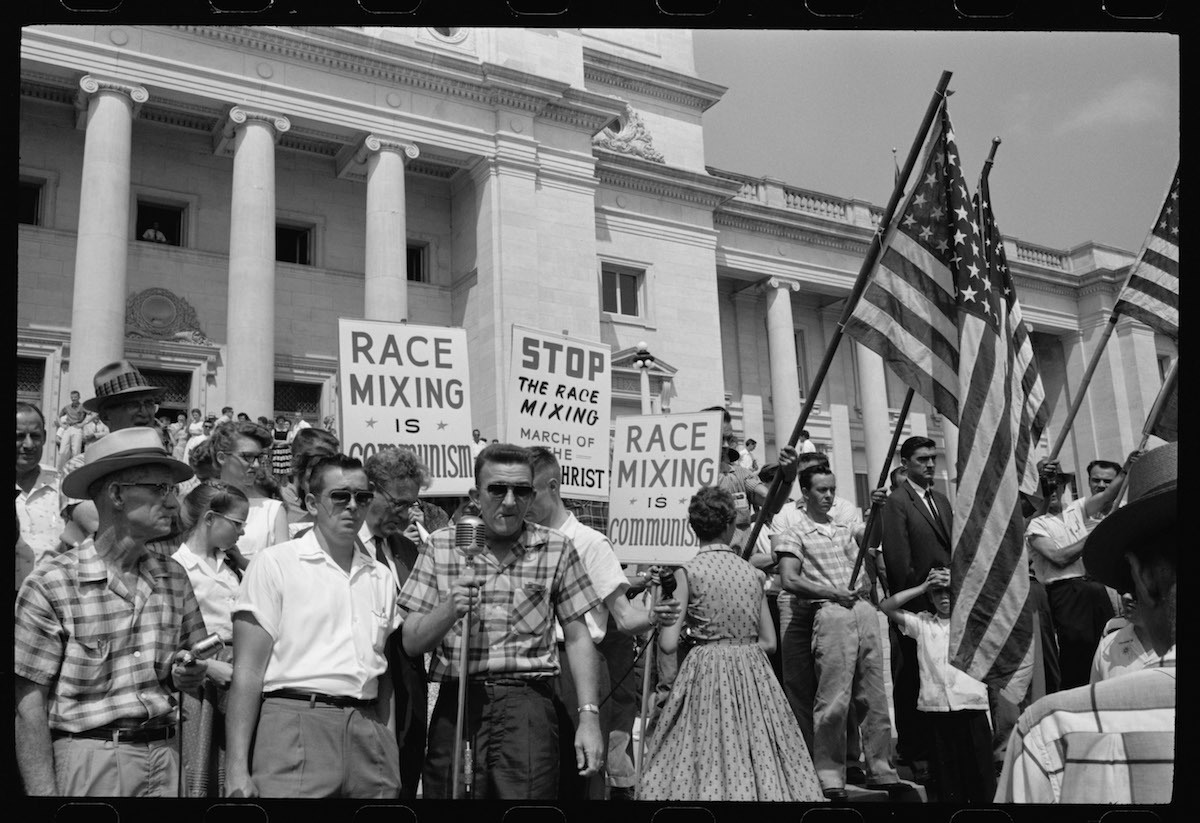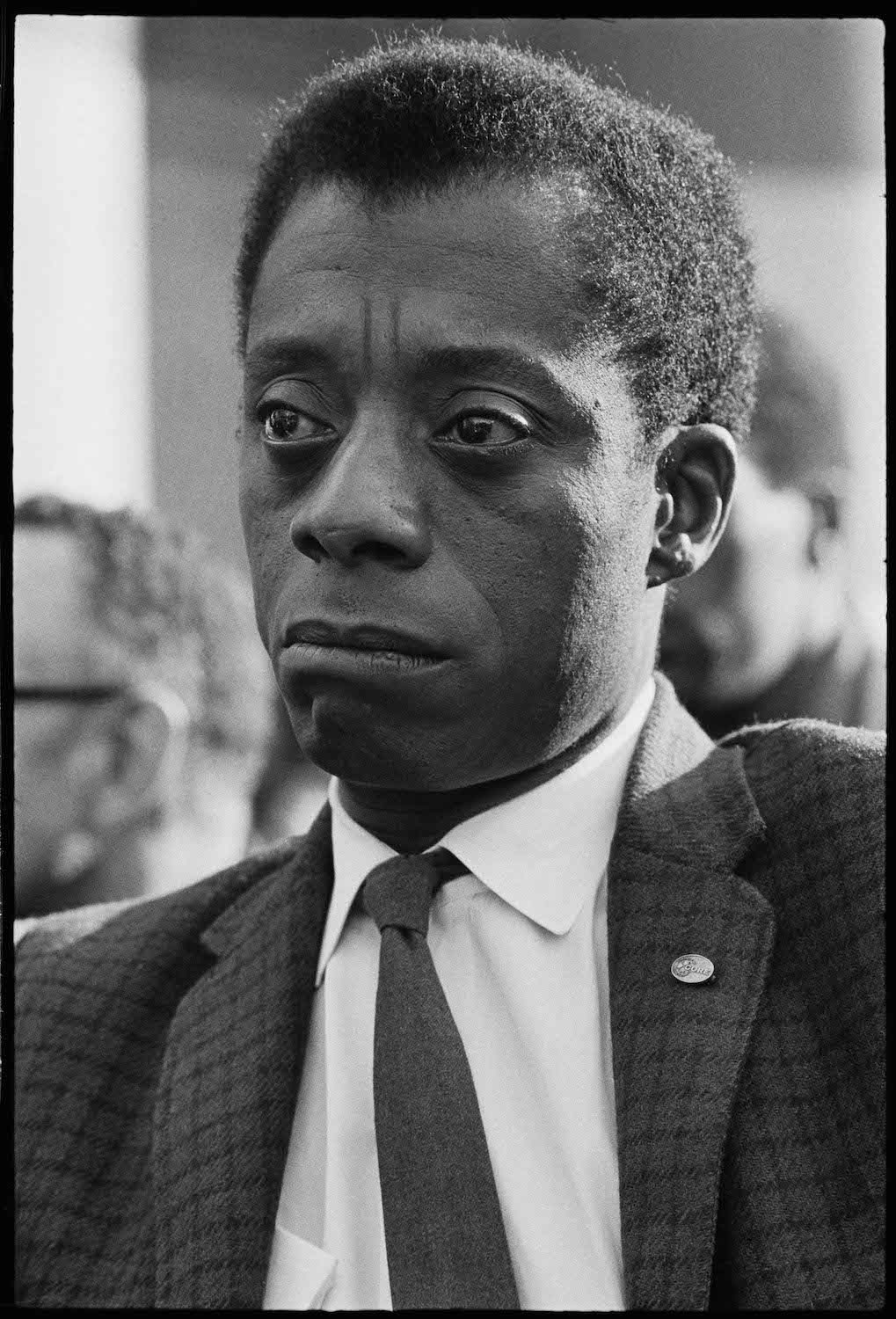James Baldwin died thirty years ago this year, but his words read like they could have been penned in the aftermath of Ferguson or Baltimore. They aid us in understanding Obama, #BlackLivesMatter, and the current US political climate. In the documentary film I Am Not Your Negro, the filmmaker Raoul Peck does exactly that. He uses Baldwin’s words — aired on TV shows or audio clips — to examine the nation’s inability to get real about racism in the author’s time and ours.
The Haitian-born filmmaker’s documentary is written and spoken by Baldwin, though his words are sometimes voiced by Samuel L. Jackson. What transpires from this beyond-the-grave reimagining is a fundamental interrogation of white America’s unwillingness to confront its racist past and present.
Peck, who describes himself as a political filmmaker in the vein of Ken Loach, says his aim was simple: “At the end, what I wanted was to bring Baldwin to the front line. To the forefront of the fight and make his words do what he has done to me and to many other people, and do it for the current generation. That was the agenda.” To do so, Peck secured the rights to Baldwin’s literary estate. But it was four years before the genesis for I Am Not Your Negro emerged, when the writer’s sister showed the filmmaker an unfinished manuscript.
Remember This House, which Baldwin did not finish before his death in 1987 at the age of 63, hoped to tie the assassinations of his three friends — Martin Luther King Jr, Malcolm X, and Medgar Evers — into a searing narrative about racism. These 30 pages of Baldwin’s words could, Peck realized, form the framework of I Am Not Your Negro. “Everything made sense,” says Peck. “The film will be to find that book, and it’s, of course, the excuse to go everywhere and to create that ultimate Baldwin film.”
So I Am Not Your Negro is also a testament to Baldwin as artist. It’s the kind of film that makes you hit the library for the author’s back catalogue — to seek out books like Giovanni’s Room and The Fire Next Time (which Barry Jenkins credits as direct inspiration for his Oscar-winning film Moonlight).
Baldwin proves himself extraordinarily current in I Am Not Your Negro, which was also nominated in this year’s Oscars. For while the film’s origins lie in the black Civil Rights movements of the 1960s, it journeys — using Baldwin’s depressingly prophetic words — to present a vision of contemporary America that is paralyzed by its own denial.
“I knew that it would be current and not only that, but that it’s fundamental,” Peck says of the film’s critique of modern America. “Baldwin is one of the voices that can help today. Because what we are seeing today with Trump, we were already feeling it throughout the world. This aspect that ideology is dead, that history is dead, that politics is nothing anymore, there are no sides, no left, no right, science has a bad reputation. I felt for young people. How do you find your way through that?”
Baldwin offered a route out. “Going back to Baldwin was going back to fundamentals,” explains Peck. “You can follow it. It’s rare today, to have that kind of clarity. It’s not a matter of how current it will be; I just knew it will be important.”
One of the many places I Am Not Your Negro goes on its journey back and forth through recent American history, is to Hollywood. Here, the cinephile Baldwin interrogates pop culture’s enduring role in propagating lies about race in the United States. In the film, Baldwin relates how as a young boy he would side with the cowboys against the Indians, not realizing he was the bad guy.
Peck finds the images to mark Baldwin’s words. Most arresting of all: a sequence of Doris Day living out the 50s American celluloid dream is followed by still photographs of black men and women strung up to die on trees. The point is that you can live in America and deny the reality of the place.
“Those two realities exist,” says Peck. “I am not denying Doris Day; on the contrary, you can be Doris Day or watch Doris Day all your life and ignore that other part. Because you don’t have to [face it].”
I Am Not Your Negro is not an exercise in white bashing, but it also speaks its brutal truth. Racism is not simply violent instances but a cultural ignorance, a systematic failure to think. “The vast majority of those moments are a lot of ignorance or a lack of empathy, like Baldwin says. Nothing else,” explains the director. “When Baldwin speaks about this cruel, vast, unthinking white majority, this is really deep. This is why most people can have a good conscience because it’s not bad, it’s just the reality.”
With help from a masterful filmmaker, I Am Not Your Negro is Baldwin’s wake up call from that reality.

Credits
Text Colin Crummy
